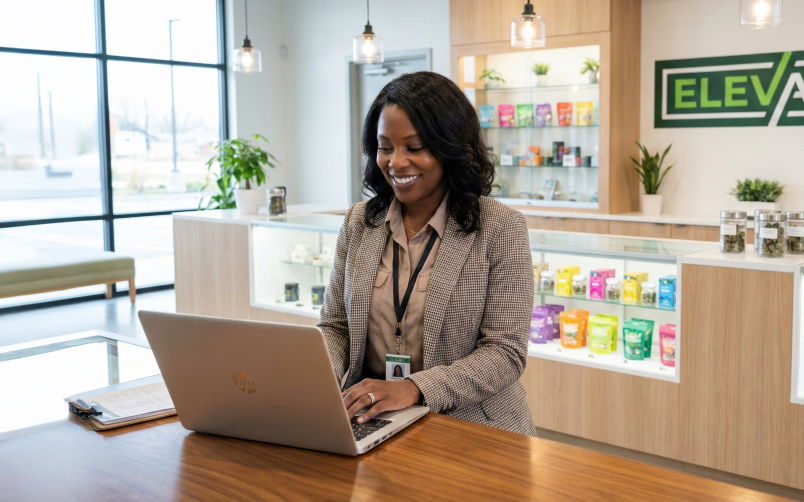Consumption Lounges Are Now Open in New Jersey

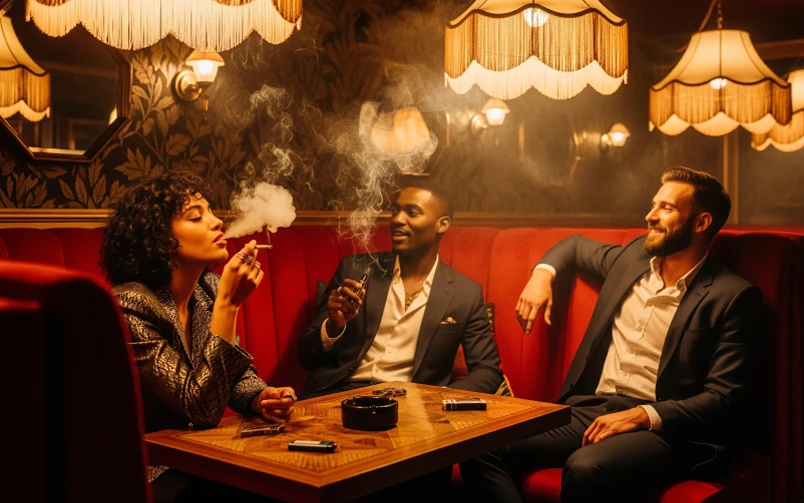
It’s official. New Jersey now has cannabis consumption lounges in operation, marking a significant milestone in the state’s cannabis regulation and culture. These lounges are reshaping what it means to consume cannabis legally, socially, and commercially in the Garden State. Let’s take a deeper look into which lounges are now open to the public, what licensing and rules apply, and what the future may hold.
New Jersey Cannabis Lounges Are Now Open
On July 15, 2025, the New Jersey Cannabis Regulatory Commission (CRC) gave the green light to the state’s first four consumption lounges. These were approved in “diversely owned businesses” categories.
The four lounges currently operating are:
- SunnyTien Dispensary & Lounge, Atlantic City
- High Rollers Luxury Consumption Lounge, Atlantic City
- Gynsyng’s Community Lounge, Merchantville
- URB’N Dispensary, Newark
These spaces are open only to adults 21 and older. Some are described in the press as having “bar-like atmospheres” with entertainment, comfortable seating, art/arcade spaces, games, and even community events.
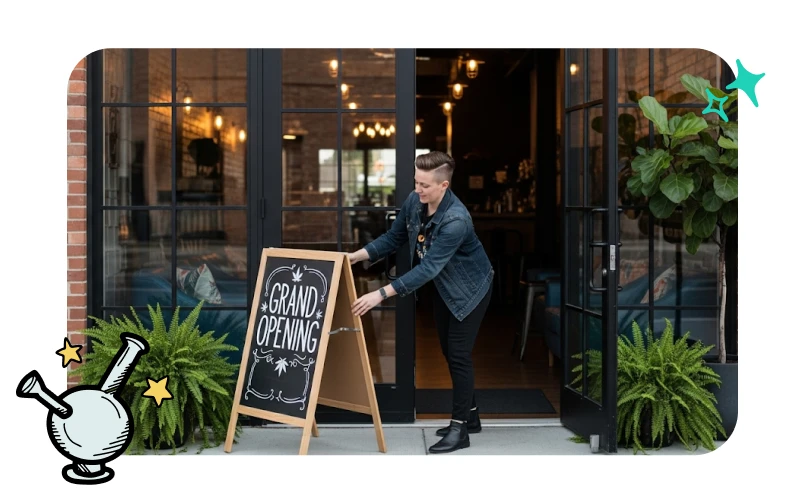
Cannabis Lounge Rules and Regulations
To stay on the right side of the law, it is helpful to know what the regulations are for the new cannabis lounges. Here are the most important licensing and compliance requirements, drawn from the state rules and KayaPush’s recent NJ Licensing & Compliance Guide.
Endorsements & Licensing
Lounges must be attached to licensed dispensaries (retail locations). They require a “consumption lounge endorsement” from the CRC.
Municipal Approval
Even with state endorsement, the local municipality must approve. Local zoning, ordinances, and distance from sensitive uses (schools, playgrounds, houses of worship) may matter.
Fees
The application fee is split into a submission fee ($200) and an approval fee ($800). Once licensed, annual fees are $5,000 for standard businesses; microbusinesses pay $1,000 annually.
Physical & Operational Standards
- The consumption lounge must be on the same property as the dispensary.
- Ventilation/air quality standards apply, especially indoors. For outdoor or partially outdoor consumption areas, issues like sightlines (blocking view from sidewalks) matter.
- No alcohol, tobacco, or nicotine inside lounges.
- Food cannot be sold on-site by the dispensary, but delivery or external food trucks may be allowed depending on local rules.
- Age verification (21+), and medical cannabis patients may bring their own medicine if properly labeled. Recreational users must buy on-site.
- Guests can’t leave with open packages unless those packages are resealable and child-resistant.
Priority Windows & Social Equity
Initial application windows favored social equity, impact zone, or diversely owned businesses. After those priority windows, licensing opens more broadly.
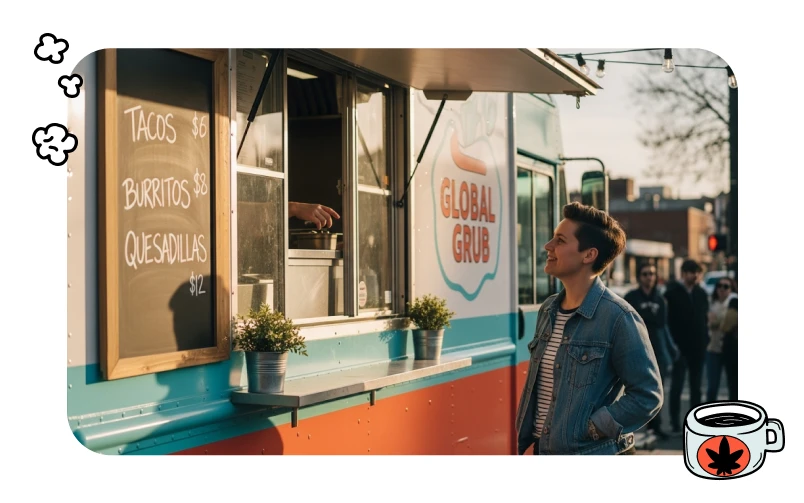
Expected Impact of Cannabis Lounges
The opening of these lounges signifies more than just a new social outlet. It has implications for consumer behavior, policy changes, and economics in New Jersey.
Consumer Access & Social Equity
Many people can’t or don’t want to consume cannabis at home. They may have landlord rules to abide by, housing restrictions, or merely a lack of privacy. Lounges are an ideal solution, giving consumers a legal, safe place to enjoy cannabis products. Consumption lounges fill a gap in access.
Also, the prioritization of diversely owned and social equity businesses means that the initial operators are more representative of communities traditionally underserved in cannabis regulation. This could set patterns for inclusive growth and broaden the customer base.
Public Health & Safety
With well-regulated consumption areas and required ventilation and operational controls, there’s a chance to reduce public smoking in illegal or unsafe locations, such as in cars, or on public sidewalks. The state clearly intends that this is one of the benefits of allowing cannabis lounges to open.
Economic Opportunities & Tourism
Atlantic City is just one of the cities that may benefit from cannabis tourism. Located in boardwalk zones, near entertainment and hotels, lounges like High Rollers and SunnyTien have visibility and potentially high foot traffic. More lounges could drive spillover spending in food, lodging, and entertainment.
Business Models & Differentiation
For dispensaries, lounges offer a way to extend dwell time, add events (music, games, arts), and create a destination rather than just foot traffic through a retail point. It helps to build brand loyalty and higher profit margins when people are consuming more products, purchasing additional cannabis accessories, or buying premium items that they might not otherwise buy.
Cannabis Lounge Estimates by Year-End
While only four lounges are currently open, applications are in motion, and the CRC has structured phased windows for licensing: first for social equity & diversely owned, then microbusinesses & diversely owned, then all eligible businesses.
Given the rate of approvals so far, the number of dispensaries in New Jersey (about 250 legal recreational dispensaries), and the interest from operators, it's reasonable to project that by the end of 2025, there could be dozens of lounges operating. The number could grow from four to between 20-40 (or more) lounges.
The projected growth is dependent upon municipal approvals, build-out time, financing, and public acceptance. It also assumes that many dispensaries that already hold retail licenses apply for the endorsement and satisfy local zoning, ventilation, and other requirements.
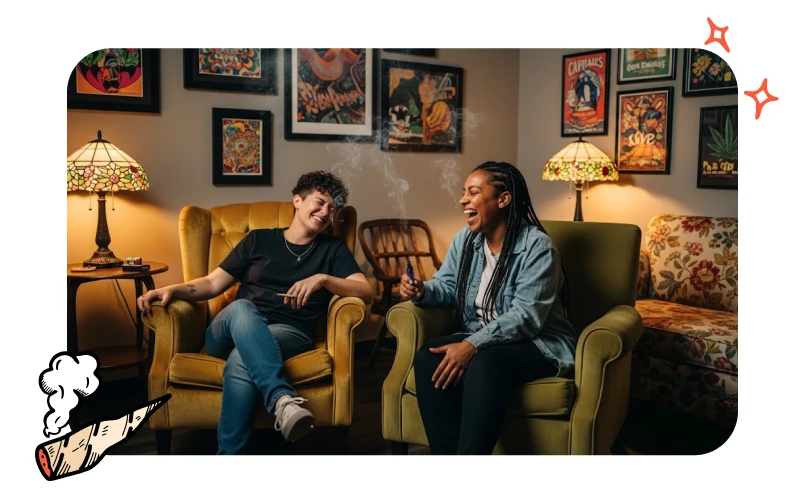
Challenges & What to Watch
As with most of the cannabis industry, there are always challenges to overcome.
Some of these include:
- Municipal opt-outs / local opposition: Even if the state allows them, individual municipalities can pass ordinances that limit or ban consumption lounges or impose strict zoning, setback, or permit requirements, which can slow expansion.
- Build-out costs: Ventilation, physical separation, safety, security, staff training, furnishing the lounge, and compliance all have upfront costs. Not all businesses will find this feasible or worth the capital investment without a strong business case.
- Enforcement & compliance: Ensuring age checks, preventing visible intoxication, handling delivery or food delivery permissions, and preventing consumption of tobacco or alcohol will all require ongoing oversight.
- Consumer expectations: Expectations are high for consumption lounge experiences, so operators that deliver comfort and a great ambience will likely thrive; those that don’t may see criticism and declining profits.
Licensing & Compliance Resources
For anyone in the New Jersey cannabis industry, understanding the licensing and compliance landscape is vital. Our New Jersey Licensing & Compliance Guide provides a compliance overview, timelines, and best practices for:
- Preparing applications for social consumption/lounge endorsements
- Navigating fees (application, approval, annual) and priority windows, especially for social equity/diversely owned businesses
- Operational standards and compliance requirements
Conclusion
The opening of New Jersey’s first cannabis consumption lounges is a turning point. The safe, legal, social consumption has graduated from a dream to reality. Cannabis lounges introduce a new layer to the cannabis ecosystem. They offer opportunities for cannabis businesses to stand out among the competition, build community, and increase tourism. At the same time, they present challenges around regulation, cost, and municipal buy-in.
If all goes smoothly, we could see a rapid expansion from the current four lounges to potentially several dozen by year-end. Watch for which municipalities allow consumption, who wins new endorsements, and how customers respond.
